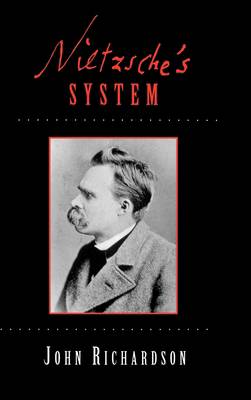
Bedankt voor het vertrouwen het afgelopen jaar! Om jou te bedanken bieden we GRATIS verzending (in België) aan op alles gedurende de hele maand januari.
- Afhalen na 1 uur in een winkel met voorraad
- In januari gratis thuislevering in België
- Ruim aanbod met 7 miljoen producten
Bedankt voor het vertrouwen het afgelopen jaar! Om jou te bedanken bieden we GRATIS verzending (in België) aan op alles gedurende de hele maand januari.
- Afhalen na 1 uur in een winkel met voorraad
- In januari gratis thuislevering in België
- Ruim aanbod met 7 miljoen producten
Zoeken
Omschrijving
This book argues, against recent interpretations, that Nietzsche does in fact have a metaphysical system--but that this is to his credit. Rather than renouncing philosophy's traditional project, he still aspires to find and state essential truths, both descriptive and valuative, about us and the world. These basic thoughts organize and inform everything he writes; by examining them closely we can find the larger structure and unifying sense of his strikingly diverse views. With rigor and conceptual specificity, Richardson examines the will-to-power ontology and maps the values that emerge from it. He also considers the significance of Nietzsche's famous break with Plato--replacing the concept of "being" with that of "becoming." By its conservative method, this book tries to do better justice to the truly radical force of Nietzsche's ideas--to demonstrate more exactly their novelty and interest.
Specificaties
Betrokkenen
- Auteur(s):
- Uitgeverij:
Inhoud
- Aantal bladzijden:
- 328
- Taal:
- Engels
Eigenschappen
- Productcode (EAN):
- 9780195098464
- Verschijningsdatum:
- 7/03/1996
- Uitvoering:
- Hardcover
- Formaat:
- Genaaid
- Afmetingen:
- 163 mm x 241 mm
- Gewicht:
- 598 g

Alleen bij Standaard Boekhandel
+ 763 punten op je klantenkaart van Standaard Boekhandel
Beoordelingen
We publiceren alleen reviews die voldoen aan de voorwaarden voor reviews. Bekijk onze voorwaarden voor reviews.









